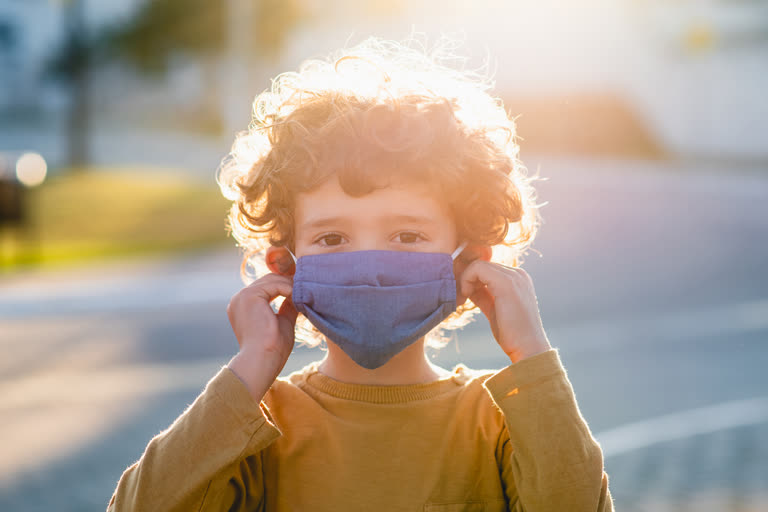The new wave of COVID-19 in India has affected not just adults, but kids as well. Although the kids are symptomatic this time, the severity of the infection is comparatively less. The recovery is quicker in kids, however, there is one condition that some children post-COVID-19 recovery have shown to have known as Multi-system Inflammatory Syndrome (MIS-C). The ETV Bharat Sukhibhava team spoke to Dr. Vijayanand Jamalpuri, MD, FRCPCH, Fellowship in Neonatology, Rainbow Children’s Hospital, Hyderabad, and here is what he says, “This condition is possible in children after a few weeks of the infection, possibly after 3-4 weeks. It happens due to the reactions in one’s own body to the virus, causing inflammation”.
The Centers for Disease Control and Prevention (CDC), describes this condition as, “a condition where different body parts can become inflamed, including the heart, lungs, kidneys, brain, skin, eyes, or gastrointestinal organs. Children with MIS-C may have a fever and various symptoms, including abdominal (gut) pain, vomiting, diarrhea, neck pain, rash, bloodshot eyes, or feeling extra tired”.
Its diagnosis may require blood or urine tests, scans, or other tests as per symptoms and requirements. Once diagnosed, immediate treatment is given. Therefore, if your child is having high-grade fever (102-103°F), 3-4 weeks after recovery, contact a doctor immediately.
Apart from MIS-C, a child can have lethargy and post-viral fatigue for several weeks, but it is not as much in kids as compared to adults.
What Are The Preventive Measures?
As we always say, “Prevention is better than cure”, try to keep away the kids from getting infected. Here are some preventive measures as recommended by Dr. Vijayanand:
- Since it is mostly the adults who step out to get the essentials, they need to be extra cautious and follow all the preventive measures.
- People over 18 years are now eligible to get vaccinated, so as soon as the slot is available, get yourself vaccinated so that you do not get infected or transmit the virus to the kids.
- Kids too need to follow all preventive measures like wearing a mask, physical distancing, frequent hand washing, and maintaining respiratory hygiene. As per CDC, all kids, 2 years or older are advised to wear a mask.
- Avoid gatherings, birthday parties, or sleepovers.
Also Read: The New Strain Of COVID-19 Affecting Kids? Do Not Panic
Parents need to be vigilant under the current situations. Even though the kids are having a mild infection, proper care is still required as they can be the carriers of the virus and infect others in the family, especially those who are at high risk and vulnerable.
What If The Child Is Positive?
If you think your child may have been exposed to the virus or they present any related symptoms, especially fever, sore throat, cough, or gastrointestinal issues like vomiting or diarrhea, get your kid-tested. If they are positive or are negative but still presenting similar symptoms as that of COVID-19, consult a doctor immediately. One can do video or teleconsultations if your child has mild symptoms. Take care of his/her diet. Ensure they are having a healthy diet and sufficient fluids, along with symptomatic treatment, i.e. medicines particular to the symptoms.
Some important things to keep in mind:
- The medication for kids is not the same as that of adults. Therefore, consult your doctor or a pediatrician for child-specific treatment of COVID-19.
- Monitor their body temperature and SPO2 levels frequently and regularly update your doctor about the same.
- If the child has fever beyond 3 days, fast breathing, difficulty in breathing, lethargy, severe diarrhea or SPO2 levels drop below 95%, consult your doctor immediately to know if hospital admission is required or not.
- Early intervention is a must, do not delay the treatment at all.


